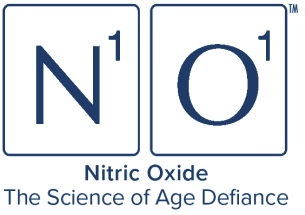Top 6 Foods With Nitrate Oxide to Boost Levels and Enhance Your Health Naturally
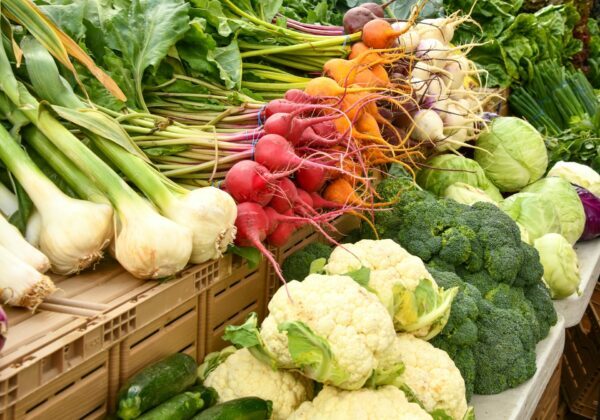
By Alyssa Seidler
12/24/2024
Understanding Nitric Oxide
What is Nitric Oxide?
Nitric oxide (NO) is a gaseous molecule that serves as a critical chemical messenger in the body, facilitating various biological functions. It plays a vital role in maintaining healthy blood circulation, regulating blood pressure, and promoting overall cardiovascular health.
Naturally produced by the body, nitric oxide is synthesized in the endothelial cells lining the blood vessels through the action of the enzyme nitric oxide synthase, where it helps to relax and widen blood vessels, improving blood flow.
Though the body can produce nitric oxide on its own, levels can be optimized through dietary and lifestyle changes. By consuming certain foods, you can naturally enhance nitric oxide production, benefiting your cardiovascular system and overall health.
Along with the right diet, you can also ensure your nitric oxide levels are where they need to be with a nitric oxide supplement. So, along with eating the right food with nitrate oxide, it is highly recommended that you take advantage of a nitric oxide supplement like N.O. Beetz.
Benefits of Boosting Nitric Oxide Levels
Boosting nitric oxide levels offers a host of health benefits, such as:
- Lowering high blood pressure: By dilating blood vessels, nitric oxide helps reduce resistance in the arteries, leading to lower high blood pressure.
- Improving blood flow: Increased nitric oxide levels lead to better circulation, which can improve oxygen and nutrient delivery throughout the body.
- Enhancing exercise performance: Nitric oxide boosts stamina and endurance by improving blood flow to muscles during physical activity.
- Supporting cognitive function: Better blood flow to the brain helps improve cognitive performance and memory.
- Supporting immune function: Nitric oxide plays a role in immune system regulation, helping fight off infections and inflammation.
- Anti-inflammatory effects: Nitric oxide reduces inflammation, potentially lowering the risk of chronic diseases such as heart disease, diabetes, and cancer.
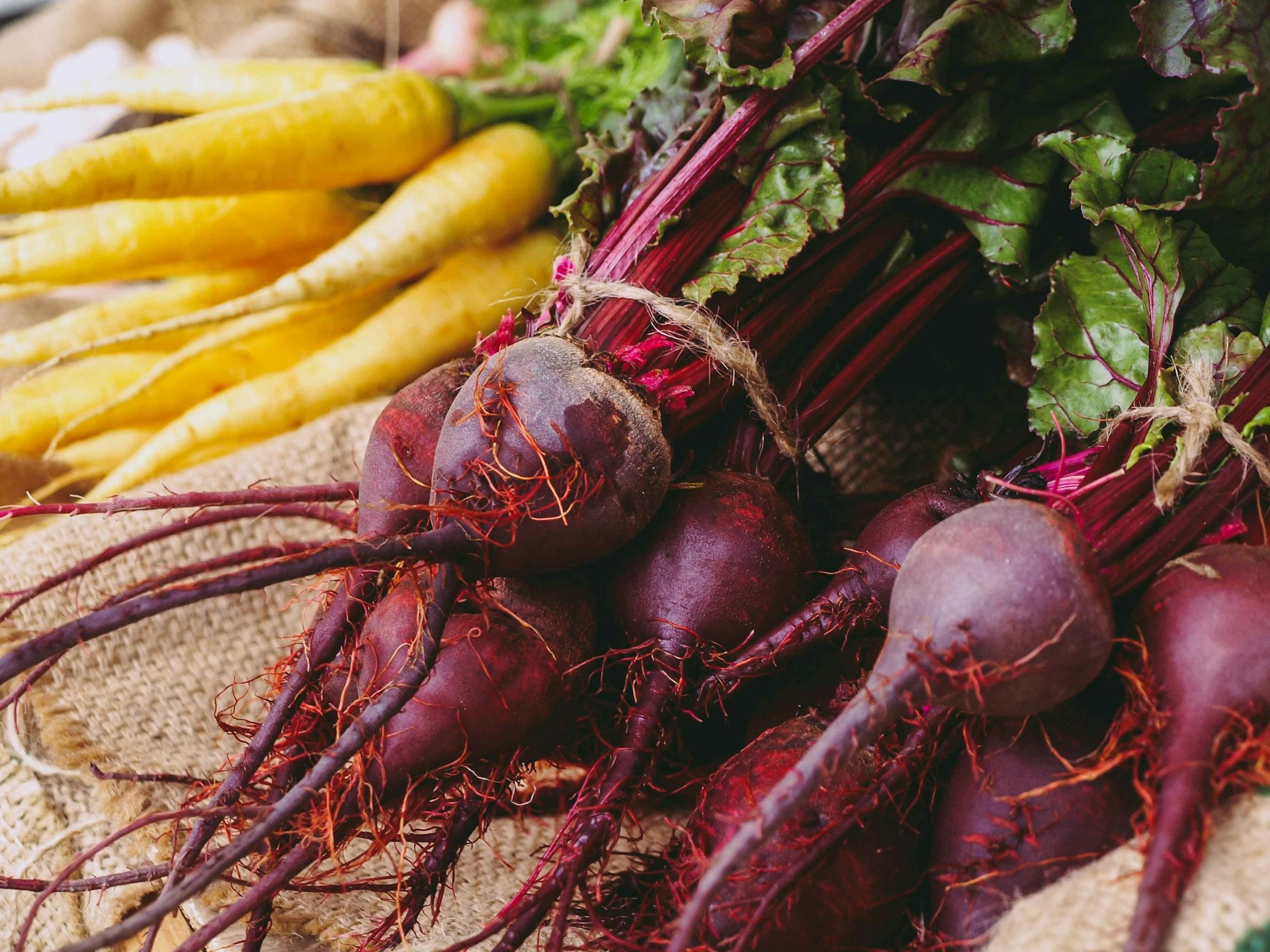
Top 6 Foods that Boost Nitric Oxide Naturally
Beets
Beets are one of the top foods for boosting nitric oxide levels due to their high content of dietary nitrates. When consumed, nitrates are converted into nitric oxide in the body, leading to improved blood flow and lower blood pressure.
Studies have shown that beetroot juice can enhance exercise performance by increasing endurance and stamina, making it a favorite among athletes.
Beets are also rich in antioxidants and fiber, contributing to better digestion, reducing oxidative stress, and promoting heart health. Including beets in your diet—whether roasted, juiced, or added to salads—can be an easy way to boost nitric oxide levels.
Garlic
Garlic is another powerful food that supports nitric oxide production. It contains compounds like allicin, which have been shown to enhance nitric oxide levels.
Garlic not only helps increase blood flow but also contributes to reducing blood pressure and cholesterol levels, both of which benefit cardiovascular health.
Additionally, garlic has antibacterial, antiviral, and antifungal properties, making it an excellent addition to any diet for immune system support. Including raw or cooked garlic in your meals can help boost nitric oxide production and promote better overall health.
Leafy Greens (Spinach, Arugula, Kale)
Leafy greens such as spinach, arugula, and kale are rich in nitrates and nitrites, which are essential for the body to produce nitric oxide. These vegetables are also packed with vitamins, minerals, and antioxidants that promote heart health, fight inflammation, and support healthy circulation.
In particular, spinach is often considered one of the best sources of nitrates. Consuming leafy greens in smoothies, salads, or as a side dish can help improve nitric oxide production naturally.
Citrus Fruits
Citrus fruits like oranges, lemons, and grapefruits are rich in vitamin C, a nutrient that can enhance the bioavailability of nitric oxide in the body.
Citrus fruits can enhance the activity of nitric oxide synthase, thereby boosting nitric oxide production. Vitamin C helps protect nitric oxide from oxidation, allowing it to remain active longer and continue promoting healthy blood flow.
Citrus fruits are also high in antioxidants and flavonoids, compounds that help reduce inflammation and support overall cardiovascular health. Eating a citrus fruit a day can not only boost nitric oxide levels but also improve your immune system and general well-being.
Watermelon
Watermelon is rich in the amino acid L-citrulline, which plays a significant role in increasing nitric oxide production. L-citrulline is converted to L-arginine in the kidneys, which then boosts nitric oxide levels in the body. This process helps improve blood flow and reduce blood pressure.
In addition to promoting healthy circulation, watermelon is high in antioxidants like lycopene, which contributes to heart health and helps reduce inflammation.
Enjoying fresh watermelon during the summer months can be a refreshing way to support cardiovascular health and enhance nitric oxide levels.
Nuts and Seeds
Nuts and seeds, particularly almonds, walnuts, and pumpkin seeds, are excellent sources of nitrates and other nutrients that support healthy circulation. They also contain arginine, the amino acid that helps boost nitric oxide production by stimulating its synthesis in the body.
These nutrient-dense foods are also rich in healthy fats, fiber, and antioxidants, which help reduce inflammation, improve heart health, and support overall wellness. Adding nuts and seeds to your diet in the form of snacks or salad toppings can help enhance nitric oxide production.

Incorporating Nitric Oxide-Boosting Foods into Your Diet
Smoothies and Salads
Incorporating nitric oxide-boosting foods into your diet can be both easy and delicious. One of the simplest ways to do this is by adding green leafy vegetables, such as spinach and kale, to your smoothies and salads.
These vegetables are rich in dietary nitrates, which can help boost nitric oxide levels in the body, promoting better blood flow and lower blood pressure.
Here are some tips for incorporating nitric oxide-boosting foods into your smoothies and salads:
- Add a handful of spinach or kale to your favorite smoothie recipe: These green leafy vegetables are packed with dietary nitrates that can enhance nitric oxide production and improve blood flow.
- Plus, they blend seamlessly into smoothies, adding a nutritional punch without altering the taste too much.
- Use beets as a base for your smoothies: Beets are a powerhouse of dietary nitrates and can significantly boost nitric oxide levels. Their natural sweetness also makes them a great addition to smoothies, helping to lower blood pressure and improve circulation.
- Include citrus fruits like oranges or grapefruits: These fruits are rich in vitamin C, which helps enhance nitric oxide bioavailability. Adding them to your smoothies not only boosts nitric oxide levels but also provides a refreshing flavor and a dose of antioxidants.
- Top your salads with nuts and seeds: Almonds, walnuts, and pumpkin seeds are excellent sources of the amino acid L-arginine, which is crucial for nitric oxide production. Sprinkling these on your salads can help improve blood flow and support overall cardiovascular health.
By incorporating these nitric oxide-boosting foods into your diet, you can naturally enhance your nitric oxide levels, improve blood flow, lower blood pressure, and enjoy a host of other health benefits.
Whether you’re blending a nutrient-packed smoothie or tossing a vibrant salad, these simple additions can make a big difference in your overall well-being.

Lifestyle Factors that Affect Nitric Oxide Levels
While eating the right foods is essential for boosting nitric oxide levels, certain lifestyle factors can also help optimize its production.
Exercise and Sunlight Exposure
- Exercise: Regular physical activity is one of the most effective ways to boost nitric oxide production. Aerobic exercises like walking, running, and cycling stimulate the production of nitric oxide, improving blood flow and cardiovascular health.
- Sunlight exposure: Exposure to sunlight helps stimulate the production of vitamin D, which in turn supports nitric oxide production. Ensuring adequate sunlight exposure can help optimize nitric oxide levels and promote overall cardiovascular health.
Avoiding Nitric Oxide Inhibitors
Certain substances and foods can inhibit nitric oxide production. For example, processed meats, sugary drinks, and foods high in sodium can reduce nitric oxide availability. By avoiding these, you can support your body’s ability to produce and maintain healthy levels of nitric oxide.
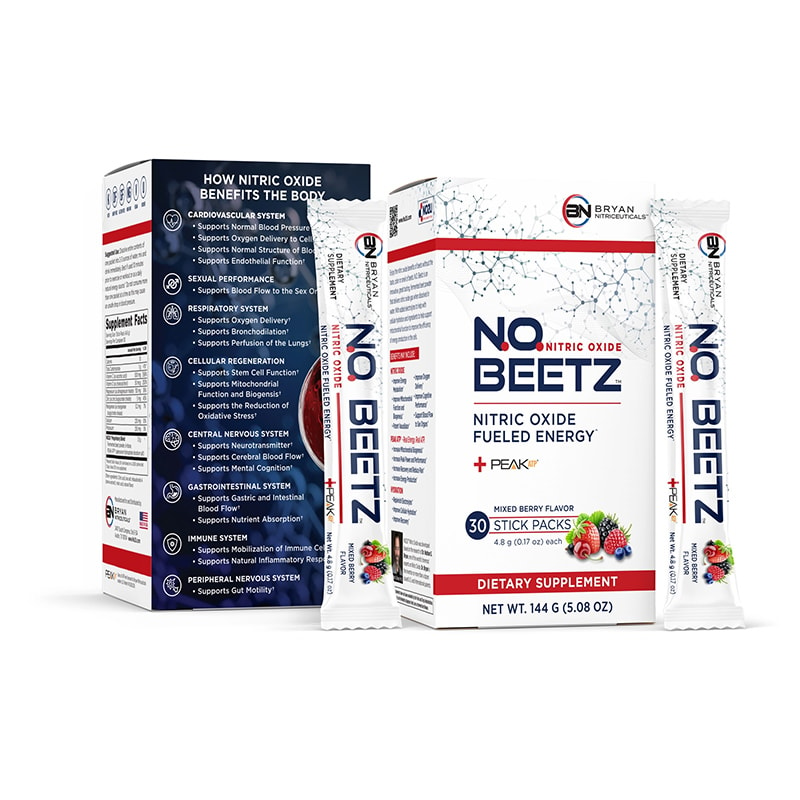
N.O. Beetz Nitric Oxide Supplement
Supporting cardiovascular health, circulation, and cellular function, N.O. Beetz is an innovative and science-backed supplement. Packed with flavor and crafted for convenience, this supplement is vegan, gluten-free, and compatible with Keto and Paleo diets, making it a versatile addition to any health-focused lifestyle.
With N.O. Beetz, you can enjoy a fresh approach to better health and ensure that your nitric oxide levels are where they need to be.
Key Takeaways
- Nitric oxide is a crucial molecule for maintaining healthy blood circulation, regulating blood pressure, and promoting overall cardiovascular health.
- Certain nitrate-rich foods, such as beets, garlic, leafy greens, citrus fruits, watermelon, and nuts and seeds, can significantly boost nitric oxide levels in the body.
- Regular exercise, sunlight exposure, and a diet rich in antioxidant-packed foods can further enhance nitric oxide production and improve overall health.
- Supplements can play a crucial role in maximizing your nitric oxide levels.
- By incorporating these foods, supplements, and lifestyle changes, you can support your cardiovascular system, improve circulation, and optimize nitric oxide levels for better health and vitality.

Frequently Asked Questions
What foods are high in nitric oxide?
Foods like beets, garlic, leafy greens, watermelon, and citrus fruits are some of the best sources of dietary nitrates and compounds that support nitric oxide production.
What food has the most nitrous oxide in it?
Beets are among the top foods for boosting nitric oxide levels, thanks to their high nitrate content.
What foods are highest in nitrates?
Leafy greens, beets, and celery are among the foods highest in nitrates, which are converted into nitric oxide in the body.
How do I increase nitric oxide in my body?
You can increase nitric oxide production by consuming nitrate-rich foods, exercising regularly, and ensuring adequate sunlight exposure. Supplements like L-arginine and L-citrulline can also support nitric oxide production.
Top 6 Foods With Nitrate Oxide to Boost Levels Conclusion
Incorporating nitric oxide-boosting foods into your diet is a powerful way to enhance cardiovascular health, improve exercise performance, and support overall vitality.
By focusing on a nutrient-rich diet, regular physical activity, and healthy lifestyle choices, you can naturally increase nitric oxide levels and promote long-term well-being.
With the right dietary nitrates and supplements, you can live a healthier and more active lifestyle.
-
Sale!

Nitric Oxide Dyno Duo
Original price was: $161.97.$121.48Current price is: $121.48. Add to cart -
Sale!

Age-Defiance Serum
Original price was: $119.98.$89.98Current price is: $89.98. — or subscribe and save 10% Add to cart -
Sale!

N1O1 Nitric Oxide Lozenges
Original price was: $59.98.$44.98Current price is: $44.98. — or subscribe and save 10% Add to cart -
Sale!
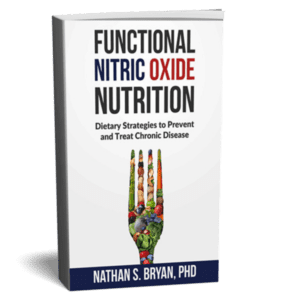
Nitric Oxide Nutrition by Dr. Nathan S. Bryan – NEW BOOK
Original price was: $14.95.$11.21Current price is: $11.21. Add to cart
